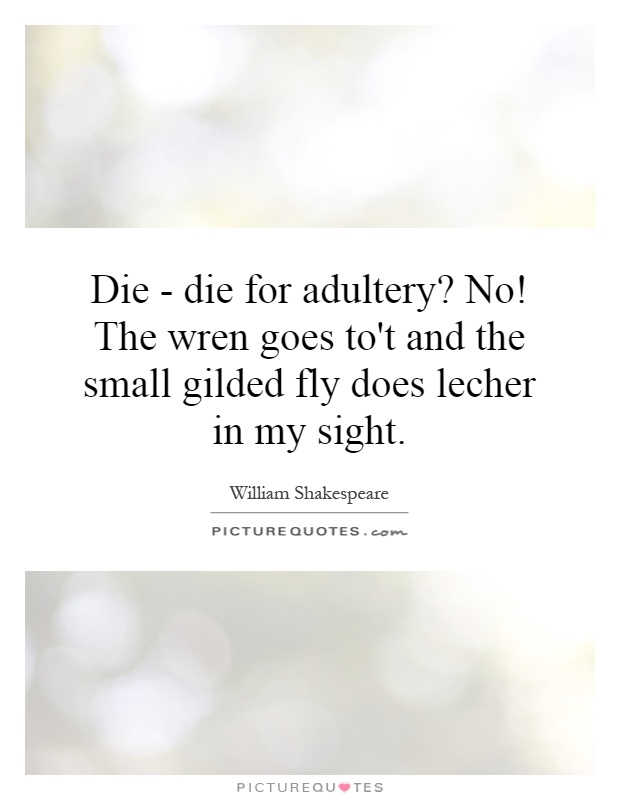Die - die for adultery? No! The wren goes to't and the small gilded fly does lecher in my sight

Die - die for adultery? No! The wren goes to't and the small gilded fly does lecher in my sight
In William Shakespeare's play "Othello," the character Emilia speaks these words in Act IV, Scene III. Emilia is the wife of Iago, Othello's ensign, and she is discussing the double standard that exists when it comes to adultery. She is outraged that women are often punished severely for committing adultery, while men are often let off the hook or even praised for their infidelities.The line "Die - die for adultery? No! The wren goes to't and the small gilded fly does lecher in my sight" is a powerful statement that challenges the societal norms and expectations placed on women. Emilia is pointing out the hypocrisy and injustice of punishing women for their sexual transgressions while men are allowed to get away with similar behavior.
The comparison of women to a wren and men to a small gilded fly is significant. The wren is a small, unassuming bird, while the gilded fly is flashy and attention-grabbing. Emilia is highlighting the fact that women are often seen as insignificant and disposable, while men are given more leeway and forgiveness for their actions.
Emilia's words also reflect the theme of gender inequality that runs throughout "Othello." Women in the play are often portrayed as victims of the male characters' actions and are subject to the whims and desires of the men in their lives. Emilia's speech challenges this dynamic and calls attention to the unfair treatment of women in society.
Overall, Emilia's words in this scene serve as a powerful critique of the double standards and injustices that exist when it comes to gender and sexuality. Shakespeare uses her character to shine a light on the hypocrisy and inequality that women face, even in the seemingly progressive society of Venice. Emilia's defiance and courage in speaking out against these injustices make her a compelling and memorable character in the play.












 Friendship Quotes
Friendship Quotes Love Quotes
Love Quotes Life Quotes
Life Quotes Funny Quotes
Funny Quotes Motivational Quotes
Motivational Quotes Inspirational Quotes
Inspirational Quotes